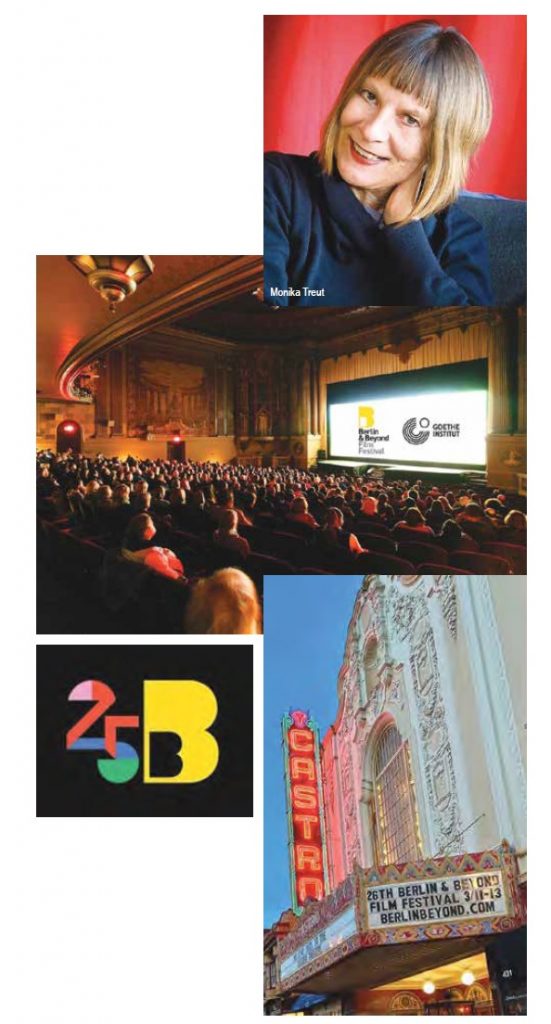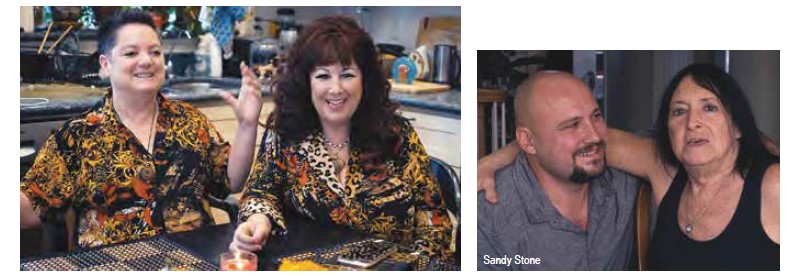
By Gary M. Kramer–
At the Berlin and Beyond Film Festival, held March 11–16 in San Francisco, Palo Alto, and Berkeley, moviegoers will have the opportunity to see out filmmaker Monika Treut’s Genderation, a sequel to her 1999 documentary Gendernauts: A Journey Through Shifting Identities. The film will screen at noon on March 13 at the Castro Theatre.
This new film reconnects with several—but sadly, not all—of the subjects from the first documentary. Here, Treut interviews Annie Sprinkle (and her wife Beth Stephens), Stafford, Susan Stryker, Max Wolf Valerio, and Sandy Stone.

The focus here is less about establishing a gender identity and more about how the subjects have lived in the world with their trans and genderfluid identities over the past two decades. Some of the observations are gratifying, as when Stafford says that people who know him well through working with him are surprised when he reveals he is transgender. Others, like Susan Stryker, who has made critical inroads in academia with transgender studies, show how far the discipline has come during a scene of her presenting at the National Women’s Studies Association conference.
Genderation is particularly sensitive to how San Francisco has changed in the past two decades. There are several discussions by multiple interviewees about how the tech boom has squashed the arts, raised the cost of living, and gentrified neighborhoods. This surely is not news to anyone who lives in the Bay Area, but the nostalgia the participants feel for the past when San Francisco was an exciting scene for trans and non-binary people and artists is palpable.
Annie Sprinkle and Beth Stephens try to continue the effort staging “ecosexual” events, and the film features scenes with them literally communing with nature. An episode of the couple looking through bins of costumes from past performance art events is charming.
Some viewers might wish to see more contrast between the subject from then to now, to illustrate the changes that have taken place in the ensuing years. Treut includes some images, but for anyone unfamiliar with the individuals featured in Genderation, it can feel like a disadvantage in having a learning curve.

There is also an imbalance regarding the interviews. Max Wolf Valerio gets minimal screen time here, which is disappointing. The author of The Testosterone Files is an engaging presence and appears only in the first part of the film before disappearing entirely. Moreover, there are no people of color represented in this sequel.
Sandy Stone, who narrated the first film, is given arguably too much visibility. During one interview, she is interrupted by a phone call from her ex, Darcy, a real estate agent confirming that her purchase of a house went through. It may be a significant moment, but it is not very illuminating. She also recounts a long-winded story of how she met Cynbe online and how after a lengthy email process, and eventually meeting, they became lovers, partners, and married.
The story is interesting in regard to how the transgender Stone found herself attracted to a male after being in relationships with women. And her observations about gender fluidity and identity are detailed in a photograph of her extended family, where she recounts everyone’s connection to eventually arrive at a statement that this is a “normal” American family.
The point about normalizing the trans experience is salient, but it is made far more succinctly as Stafford creates a desert community and appreciates that it is not exclusively LGBTQ. While he and others are concerned about the Trump administration rolling back rights for the transgender community in respect to health care, military service, and bathroom bills, the world is far more accepting than it was when these subjects transitioned years ago.

Genderation is also noteworthy for presenting older transpeople who have survived and thrived, and have formed loving, long-term, stable relationships. (Annie and Beth have been together for 15 years; Susan and her partner Mimi have been together for more than 23 years.) They are concerned with preserving a legacy and making the world better, not just for transpeople, but for everyone. As Annie and Beth speak to groups about global warming or Susan talks at a conference about the politics of trans studies, they are being productive and disruptive, not unlike how they were when they first started their activism.
Treut’s film offers an interesting enough portrait of its subjects that its flaws are forgivable. The opportunity to see what has become of a handful of members of San Francisco’s pioneering transgender community is valuable—even if it may leave viewers wanting more.
For tickets and more information, visit The Berlin and Beyond Film Festival https://berlinbeyond.com/2022/
© 2022 Gary M. Kramer
Gary M. Kramer is the author of “Independent Queer Cinema: Reviews and Interviews,” and the co-editor of “Directory of World Cinema: Argentina.” Follow him on Twitter @garymkramer
Published on March 10, 2022
Recent Comments